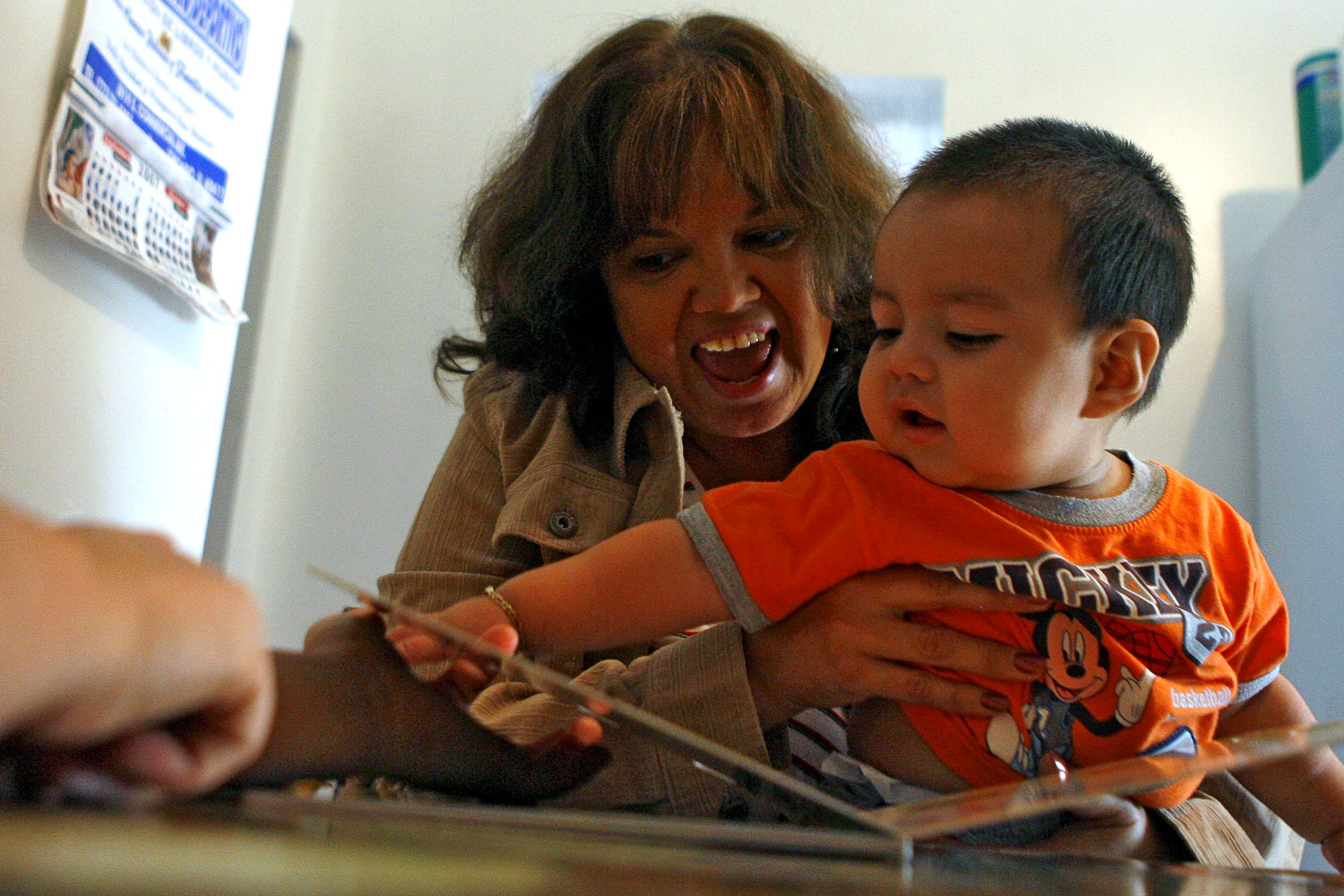Chicago-area humanitarian groups have long warned that the Illinois state budget crisis would cause irreparable damage to the state's social safety net, and the latest survey numbers suggest it's already happened.
Of the 172 human service agencies in Cook, Lake, DuPage, and Will County surveyed by United Way this month, 91 percent said they had cut clients due to budget troubles. That's up from 37 percent of agencies who said the same in July 2015.
More than half (55 percent) of the agencies said they would have to cease some services within the next six months if the state doesn't fix its budget problem. And 36 percent say they will have to close their doors in that time frame. That's 61 groups providing services like shelters for the homeless, food for the hungry, mental health care, support for domestic violence victims, and educational services that will soon shutter, according the United Way survey.
It's the fourth such survey the foundation has conducted since the beginning of the budget impasse. Human service agencies derive the majority of their budgets from state grants; private foundations like United Way contribute a smaller portion. Without a budget, most agencies are providing services without getting reimbursed or paid by the state. The average Chicago-area agency waiting for state money is owed $710,000, the report says.
"We had no idea when we started this [survey] that there'd be a budget stalemate and no budget appropriated over a full year," says Wendy DuBoe, United Way CEO. "Now it's become longitudinal."
United Way reached out to hundreds of human services agencies that receive state funding, and 429 across Illinois responded. Nearly 1 million Illinois residents are without "critical services" due to the budget stalemate, according to the group.
Much of the impact is felt in the Chicago area, because that's where many large agencies are located, DuBoe says.
"I am really worried," she says. "Metropolitan Family Services, one of our largest and best agency partners, has talked about how concerned they are … they've gone on the record saying they may need to exit service lines, including mental health services, and have laid off staff." By the end of this month, MFS will need to close four additional programs, leaving 800 clients without services.
She rattled off two or three other large humanitarian groups that publicly announced cutbacks already, not to mention another significant player, which she could not name, that told her that it will close its doors in six weeks.
"We're talking about immobile, elderly folks who don't get their food every day. There is strain on sheltering services, rape counseling. We're very concerned about the cutback on mental health and substance abuse services," she adds. "A lot of what ends up saving us money in the state, in terms of prevention, [has been cut]."
While it’s never a good sign for social service organizations to be shuttering and turning down clients, this comes at a particularly tough time for the Chicago metro area, as the Metropolitan Planning Council reports that the middle class is shrinking (down 9 percent between 2000 and 2014) and mostly moving into the lower class (up 16 percent in the same time frame). As Marisa Novara writes, “This may be due in part to the fact that our unemployment rate jumped a full 63 percent from 2000 to 2014, from 4.3 percent to 7.1, an increase second only to Los Angeles among peer metros.”
DuBoe has worked with United Way for 12 years and says the cuts are unprecedented: "We've seen over the past five to eight years a lot of reductions, year upon year upon year, that we've already shaved back human services infrastructure, because the state has had these problems for a while. But we've never gone 12 months without a state operating budget. These agencies have never been held in this situation."
Without state money, agencies are resorting to using cash reserves (57 percent) and taking out lines of credit (33 percent), and altogether the 172 agencies have taken on over $27 million in debt, the survey says.
Even if the budget impasse is resolved tomorrow, DuBoe says the cuts have been too deep to repair immediately. "You can see in our data how any agencies are laying off staff—in Chicago that's up to 47 percent now," she says. "They're losing people who are trained, and it's gonna be hard to get them back."
So beyond just getting a budget on the books, is there anything Illinois can do to mitigate some of the damage? "We need, not just a restored budget for '16, these agencies are desperately in need of a clear picture for '17," DuBoe says. "You need to craft the right policies for long-term growth … it's hard to do that if you don't look at human services in that mix too, because it gets left on the chopping block. How do you go forward and turn the corner fiscally if you don't have your civil society protected?"




